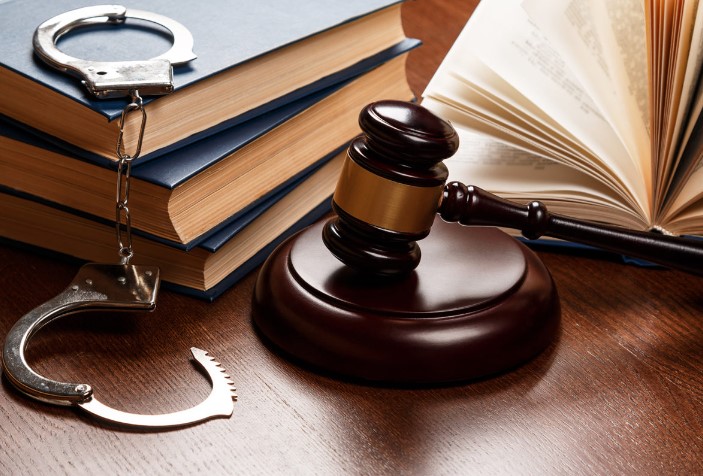Introduction
Facing criminal charges can be a distressing and overwhelming experience. When caught in a legal predicament, it is crucial to seek the assistance of a competent and experienced criminal defense attorney. A criminal defense attorney plays a vital role in protecting the rights and interests of individuals accused of criminal offenses. In this article, we will explore the responsibilities of a criminal defense attorney, the various types of cases they handle, the skills required to excel in this field, and the importance of their services.
What is a Criminal Defense Attorney?
A criminal defense attorney is a legal professional who specializes in defending individuals or organizations facing criminal charges. They are trained in criminal law and have a deep understanding of the legal system. These attorneys work diligently to protect their clients’ rights, ensure a fair trial, and seek the best possible outcome for the accused.
The Role of a Criminal Defense Attorney
A criminal defense attorney has several essential roles throughout the legal process. Their primary responsibility is to provide legal representation to their clients and safeguard their rights. They serve as advocates, advisors, and negotiators, working tirelessly to achieve the best possible outcome for their clients. From the initial stages of the case to the final resolution, a criminal defense attorney is a valuable asset to anyone facing criminal charges.
Types of Criminal Cases Handled by Defense Attorneys
Criminal defense attorneys handle a wide range of cases, including but not limited to:
1. Assault and Battery
Cases involving physical harm or threat of harm to another person, such as assault, battery, or domestic violence.
2. Drug Offenses
Defending individuals charged with drug possession, distribution, manufacturing, or trafficking.
3. White-Collar Crimes
Representing clients accused of non-violent crimes committed for financial gain, such as fraud, embezzlement, or insider trading.
4. DUI and Traffic Violations
Defending individuals charged with driving under the influence (DUI) or various traffic offenses.
5. Theft and Property Crimes
Cases involving theft, burglary, robbery, or property-related offenses.
6. Homicide
Representing individuals accused of murder, manslaughter, or other serious crimes involving loss of life.
These are just a few examples of the types of cases that criminal defense attorneys handle. Regardless of the nature of the charges, a skilled defense attorney will provide dedicated and personalized representation to protect their clients’ rights.
Skills and Qualities of a Good Criminal Defense Attorney
Being a successful criminal defense attorney requires a combination of legal knowledge, skills, and personal qualities. Here are some essential skills and qualities that contribute to the effectiveness of a defense attorney:
1. In-depth Legal Knowledge
A criminal defense attorney must have a strong understanding of criminal law, including statutes, precedents, and legal procedures. This knowledge allows them to analyze the case, identify potential defenses, and navigate the complexities of the legal system.
2. Strong Analytical and Critical Thinking Skills
To build a solid defense strategy, a defense attorney must possess excellent analytical and critical thinking skills. They need to evaluate evidence, identify loopholes, and anticipate the prosecution’s arguments to mount a strong defense.
3. Effective Communication Skills
Communication is key in the legal profession, and a defense attorney must be an articulate communicator. They should be able to convey complex legal concepts in a clear and concise manner, both in written documents and oral arguments.
4. Negotiation and Persuasion Skills
A skilled defense attorney excels in negotiation and persuasion. They engage in plea bargaining with prosecutors to secure favorable outcomes for their clients and use persuasive techniques to sway judges and juries during trials.
5. Empathy and Compassion
A good defense attorney understands the emotional and personal impact of criminal charges on their clients. They demonstrate empathy and compassion while providing support, guidance, and reassurance throughout the legal process.
The Criminal Defense Process
The criminal defense process involves several stages, each requiring careful attention and strategic decision-making. Here is an overview of the typical steps involved:
1. Gathering Evidence and Investigating the Case
A criminal defense attorney begins by thoroughly investigating the case, collecting evidence, and reviewing all available information. This process may involve interviewing witnesses, examining police reports, analyzing forensic evidence, and identifying potential defenses.
2. Building a Strong Defense Strategy
Based on the evidence and information gathered, the defense attorney formulates a robust defense strategy. They identify weaknesses in the prosecution’s case and develop arguments to challenge the evidence presented against their client.
3. Plea Bargaining and Negotiations
In many cases, a defense attorney engages in plea bargaining with the prosecution. Plea bargaining involves negotiating a lesser charge or reduced sentence in exchange for a guilty plea. This approach can be beneficial for clients who wish to avoid the risks and uncertainties of a trial.
4. Representing the Client in Court
If the case goes to trial, the defense attorney represents the client in court. They present arguments, cross-examine witnesses, and challenge the prosecution’s evidence. Their goal is to create reasonable doubt in the minds of the judge or jury.
Importance of Experience in Criminal Defense
Experience is a vital factor when choosing a criminal defense attorney. Seasoned attorneys have a deep understanding of the legal system, valuable relationships with prosecutors and judges, and a wealth of knowledge gained from handling various criminal cases. Their experience enables them to navigate complex legal procedures effectively and develop effective defense strategies.
The Benefits of Hiring a Criminal Defense Attorney
Hiring a criminal defense attorney offers numerous advantages for individuals facing criminal charges. Some key benefits include:
- Legal Expertise: A defense attorney possesses the necessary legal knowledge and expertise to handle complex criminal cases.
- Protection of Rights: They ensure that their clients’ rights are protected throughout the legal process.
- Strategic Defense: A defense attorney builds a strong defense strategy tailored to the specific circumstances of the case.
- Reduced Sentences: They negotiate with prosecutors to secure reduced charges or lighter sentences through plea bargaining.
- Trial Representation: If the case goes to trial, a defense attorney provides skilled representation, advocating for their client’s innocence.
How to Choose the Right Criminal Defense Attorney
Selecting the right criminal defense attorney is a crucial decision that can significantly impact the outcome of a case. Consider the following factors when choosing an attorney:
- Experience: Look for an attorney with a proven track record of handling criminal cases similar to yours.
- Reputation: Consider the attorney’s reputation within the legal community, including client reviews and testimonials.
- Communication: Ensure the attorney is accessible, responsive, and communicates effectively.
- Fees: Discuss the attorney’s fees and payment structure upfront to avoid any misunderstandings.
- Personal Connection: Choose an attorney with whom you feel comfortable and confident in their abilities to represent you.
Common Myths about Criminal Defense Attorneys
There are several misconceptions surrounding criminal defense attorneys. Let’s debunk some of the common myths:
1. Criminal defense attorneys defend only guilty people.
This is not true. Defense attorneys protect the rights of all individuals, regardless of guilt or innocence, ensuring fair treatment and due process.
2. Hiring a defense attorney is unnecessary if you are innocent.
Even innocent individuals can benefit from the expertise and guidance of a defense attorney. They can navigate the legal system effectively and build a strong defense to prove innocence.
3. Defense attorneys use loopholes to help criminals go free.
Defense attorneys advocate for their clients’ constitutional rights and challenge the prosecution’s evidence. They ensure a fair trial, but their goal is not to let criminals go free; it is to protect their clients’ rights and seek a just outcome.
4. Public defenders are less competent than private defense attorneys.
Public defenders are highly trained and dedicated professionals who provide legal representation to individuals who cannot afford private attorneys. They often have extensive experience and a deep understanding of the criminal justice system.
5. Defense attorneys are expensive and unaffordable.
While legal representation does come with costs, many defense attorneys offer flexible payment plans and work to provide quality representation within their clients’ financial means.
Conclusion
A criminal defense attorney plays a critical role in safeguarding the rights and interests of individuals facing criminal charges. They possess the legal knowledge, skills, and experience necessary to navigate the complexities of the legal system and provide effective representation. By understanding the responsibilities of a defense attorney, the types of cases they handle, and the importance of their services, individuals can make informed decisions when seeking legal assistance.
FAQs
1. How can a criminal defense attorney help me?
A criminal defense attorney can help by providing legal expertise, protecting your rights, building a strong defense strategy, negotiating with prosecutors, and representing you in court.
2. What should I look for when hiring a criminal defense attorney?
Consider factors such as experience, reputation, communication skills, fees, and personal connection when choosing a criminal defense attorney.
3. Can a defense attorney guarantee a specific outcome in my case?
No attorney can guarantee a specific outcome. However, a skilled defense attorney will work diligently to seek the best possible outcome for your case.
4. What if I cannot afford a private defense attorney?
If you cannot afford a private defense attorney, you may be eligible for a public defender who will provide legal representation at no cost or at a reduced fee.
5. Should I hire a criminal defense attorney even if I am innocent?
Yes, even if you are innocent, hiring a criminal defense attorney is crucial. They will help protect your rights, navigate the legal process, and build a strong defense to prove your innocence.
Partner Site : Financial Management, Vacation Destinations, Home Garden, Landscape Design, Home Decoration, How News Today, Healthy Lifestyle, Finance News, Business Loans, Healthy Update






More Stories
Employment Rights For Immigrants And Individuals With Criminal Records
Discover the Unrivaled Qualities Setting Apart a Leading Criminal Lawyer in Orange Beach, AL
Exploring the Different Types of Criminal Defense Strategies